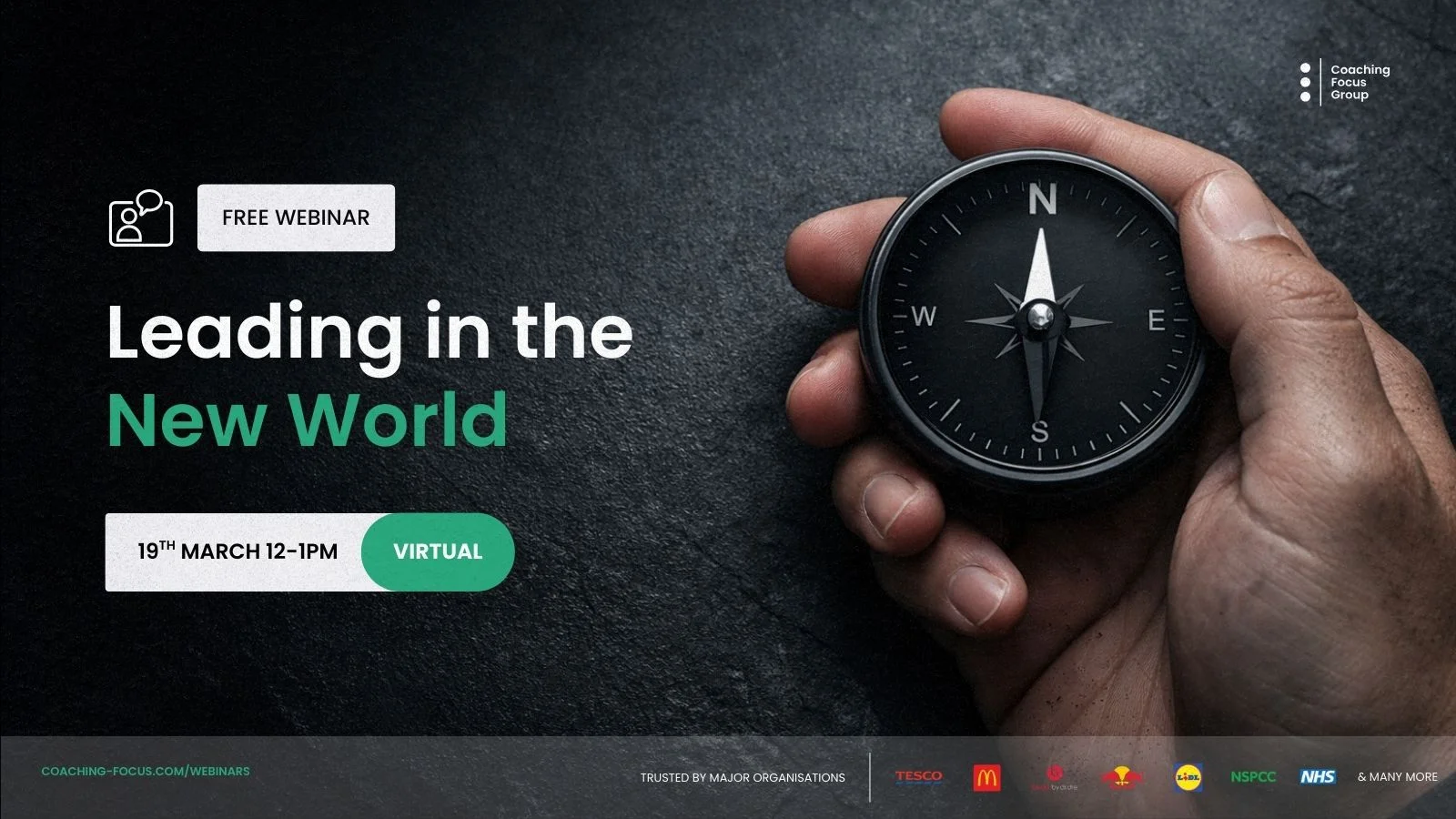When Should You Not Use Coaching?

When Should You Not Use Coaching?
Coaching has become a buzzword in both personal development and professional environments. With its focus on unlocking a person's potential to maximize their performance, coaching is often seen as a one-size-fits-all solution for various challenges. However, it's crucial to recognise that coaching, like any other tool, has its limitations and is not always the most suitable approach.
In this article, we will explore situations where coaching may not be the ideal choice.
Understanding the Essence of Coaching
Before delving into when not to use coaching, it's essential to understand what coaching is. Coaching is a process that aims to improve performance and focuses on the here and now rather than on the distant past or future. While coaching can be therapeutic, it is not therapy. Coaches work with individuals to help them achieve their personal and professional goals by unlocking their latent potential.
When Not to Use Coaching
1. When Expert Advice is Required
Coaching is fundamentally non-directive. Coaches facilitate self-discovery but do not typically offer advice or solutions. Therefore, in situations where specialised knowledge or expertise is required, such as legal advice, financial planning, or technical training, a coach is not a suitable substitute for a qualified professional.
2. Dealing with Mental Health Issues
If an individual is dealing with mental health issues like depression, anxiety, or other psychological disorders, coaching is not the appropriate tool. These conditions require the attention of a trained mental health professional who can offer therapy or counselling.
3. In Crisis Situations
Coaching is not designed to handle crises. If someone is in immediate danger, facing a severe life crisis, or needing urgent assistance, the immediate response and guidance provided by emergency services or a crisis counsellor are necessary.
4. When There is a Lack of Commitment
Coaching requires a level of commitment and willingness to change from the coachee. If the individual is not genuinely interested in the process or is unwilling to put in the effort, coaching will not be effective. This lack of commitment can be due to various reasons, including being coerced into coaching or not recognising the need for change.
5. For Performance Issues Stemming from External Factors
Sometimes, an individual's performance issues may be due to external factors beyond their control, such as organisational changes, resource constraints, or poor management. While coaching can help manage responses and attitudes towards these challenges, it cannot directly resolve external problems.
6. In Place of Managerial Responsibility
Coaching should not be used as a substitute for managerial responsibility. Issues like poor performance, disciplinary action, or staff management should be addressed through proper managerial channels. Using coaching as a scapegoat for avoiding difficult conversations or decisions can be counterproductive.
7. Unrealistic Expectations
If the expectations from coaching are unrealistic, such as transforming an individual’s personality entirely or achieving unattainable goals, then coaching is not the right approach. Setting realistic and achievable objectives is a key part of the coaching process.
8. When Confidentiality is a Concern
The coaching process relies heavily on trust and confidentiality. If a coachee feels that their confidentiality might be breached, or if the coaching is being done in an environment where privacy cannot be assured, it may hinder open communication, rendering coaching ineffective.
9. Lack of Organisational Support
In a corporate setting, if the organisation does not support the coaching culture or if the goals of coaching are not aligned with organisational objectives, the coaching process can become futile. The lack of support can manifest as insufficient time allocated for coaching sessions, lack of follow-up, or an unsupportive work environment.
10. Misalignment of Coaching Methodology
Finally, not all coaching methodologies suit every individual. If the coaching style or approach does not resonate with the coachee, it can lead to resistance and lack of progress. In such cases, either a different coaching approach or an entirely different intervention may be required.
Conclusion
Coaching is a powerful tool when used correctly and in the right context. However, recognising when not to use coaching is equally important. It’s not a panacea for all problems, and understanding its limitations helps make informed decisions about when and how to utilise it effectively.
As with any form of development, the key is to match the intervention to the specific needs and circumstances of the individual or the situation. By doing so, we can ensure that the tools we use are not just popular but are genuinely the right fit for the purpose they are meant to serve.
Trayton Vance
Trayton Vance is the Founder and Managing Director of Coaching Focus Group, one of the UK’s leading leadership coaching consultancies working with clients such as McDonalds, Beats by Dre, Paramount and many more.
Coaching Focus Group
Specialists in leadership coaching, workplace coaching programmes, and building coaching cultures that stick.
[FREE WEBINAR]
March 19 - 12pm to 1pm GMT

You might be interested in...


Employee Engagement Series












